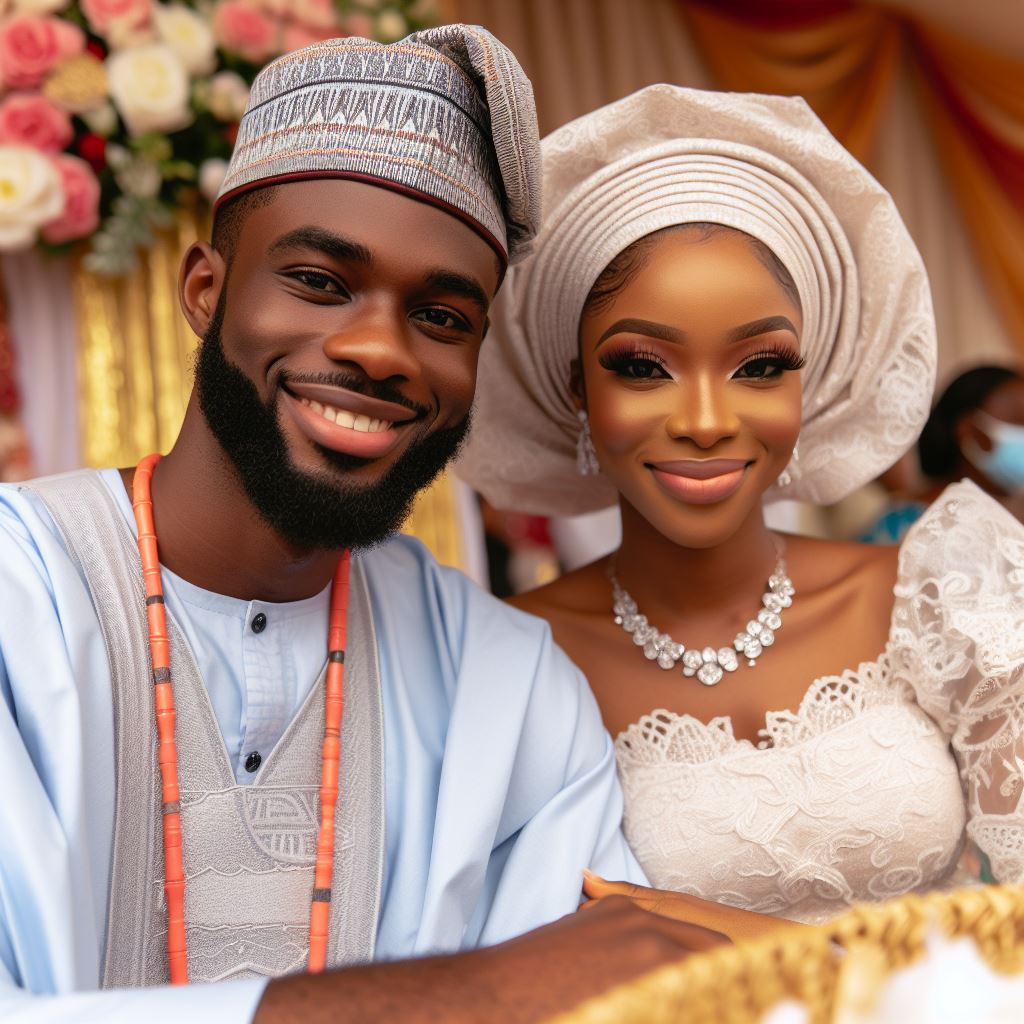The Art of Naming: Nigerian Names Guide
Last Updated on December 26, 2023
Introduction
Names play a crucial role in our lives, shaping our identity and defining who we are.
They hold immense power and have a profound impact on our sense of self.
In Nigeria, names hold even greater significance as they reflect the country’s rich cultural heritage.
Nigerian names often have deep meanings rooted in history, religion, and traditions.
The purpose of this blog post is to guide readers in understanding the art of naming, specifically focusing on Nigerian names.
We will explore the beauty, significance, and cultural importance of Nigerian names, aiming to give readers a deeper appreciation for this aspect of Nigerian culture.
Traditional Nigerian Names
In Nigeria, names are not mere labels; they hold deep cultural, linguistic, and religious significance.
Each ethnic group has distinct naming traditions, reflecting their unique customs and values.
A. Yoruba Names
Among the Yoruba people, names are chosen carefully to reflect the child’s destiny.
Yoruba names often have profound meanings, symbolizing the family’s aspirations for the child.
The naming process involves consulting diviners or elders to choose a name that resonates with the child’s spirit.
Popular Yoruba names include Adebowale (royalty brings me joy), Ayomide (my joy has come), and Babatunde (father has returned).
B. Igbo Names
The Igbo people attach great importance to names, believing they shape a child’s destiny.
Igbo names are filled with meaning and reflect the family’s hopes and aspirations.
During the naming ceremony, family members suggest names based on cultural beliefs and desires.
Well-known Igbo names include Chukwuemeka (God has done something great), Nneka (mother is supreme), and Ogechukwu (God’s time is the best).
C. Hausa Names
The Hausa people, who have strong Islamic influences, often have names with Islamic or Arabic origins.
These names carry religious significance and reflect the family’s faith.
Hausa names are typically given after the seventh day of the child’s birth during a ceremony called “Sunninki.”
Examples of popular Hausa names include Aisha (prosperous), Ibrahim (father of nations), and Fatima (captivating).
Nigerian names are not only meaningful but also serve as a form of cultural identity. They connect individuals to their heritage, history, and language.
By understanding the meaning and symbolism behind these names, one can gain insight into the rich Nigerian culture and traditions.
In essence, Nigerian names are an essential aspect of the country’s cultural heritage. Each ethnic group has its own naming customs and traditions.
Yoruba names are chosen based on deep meanings, Igbo names reflect hopes and aspirations, and Hausa names often have Islamic or Arabic origins.
Understanding these naming practices helps us appreciate the art and significance of Nigerian names.
Read: Nature-Inspired Names for Nigerian Babies
Modern Nigerian Names
A. Influence of Western Culture
- Adoption of Foreign Names: The influence of Western culture has resulted in many Nigerians adopting foreign names for their children.
Names like David, Jennifer, and Michael are now popular choices among Nigerian parents. - Nigerian Names with English Origins: In addition to adopting foreign names, Nigerians have also begun giving their children names with English origins.
Names like Grace, Victoria, and Philip have become trendy among Nigerian parents.
B. Fusion of Traditional and Modern Elements
- Unique Names with Traditional Roots: Some Nigerian parents prefer to give their children unique names that still have roots in traditional Nigerian culture.
These names often have deep meanings and reflect the parents’ desire to maintain their cultural heritage. - Combination of Nigerian and Foreign Names: Another trend in modern Nigerian names is the combination of Nigerian and foreign names.
This fusion allows parents to honor both their cultural background and their appreciation for Western influences.
C. Trends in Modern Nigerian Names
- Shortened and Abbreviated Names: Modern Nigerian names have also seen a rise in shortened and abbreviated versions.
Parents often opt for shorter names for convenience or to give their children a more modern and trendy identity. - Unisex and Gender-neutral Names: The concept of gender-neutral names has gained popularity in modern Nigerian society.
Names like Tayo, Korede, and Jolaolu can be used for both boys and girls, breaking traditional gender norms. - Unique Spellings and Pronunciations: To stand out and give their children a unique identity, many Nigerian parents choose to use alternative spellings and pronunciations.
For example, Ayden may be spelled as Aidan, and Oliva may be pronounced as O-lee-va.
Read: Celebrity-Inspired Nigerian Baby Names
Factors to Consider When Naming a Child
Choosing the perfect name for your child is an important decision that holds great significance in Nigerian culture.
It is a reflection of your cultural background, family traditions, and personal values. Here are some factors to consider when naming a child:
A. Cultural and Family Traditions
Your cultural and family traditions play a vital role in naming your child.
Nigerian names are often influenced by various ethnic groups, such as Yoruba, Igbo, and Hausa.
These names reflect the customs, beliefs, and values of these cultures.
- Research your cultural heritage and consider names that honor your family’s traditions.
- Consult with elders or family members who can provide guidance on naming practices.
- Choose a name that has a deep meaning within your cultural context.
B. Sound and Pronunciation
The phonetic qualities of a name can greatly impact how it is perceived and pronounced. Consider the following:
- Ensure the name is easy to pronounce in your native language and any other languages spoken in your community.
- Avoid names that may be mispronounced or cause confusion.
- Pay attention to the rhythm and flow of the name, as it contributes to its overall appeal.
C. Meaning and Symbolism
The meaning behind a name can shape a child’s identity and aspirations. Consider the following:
- Research the meanings and symbolism associated with different names.
- Choose a name that reflects positive qualities or aspirations you have for your child.
- Avoid names with negative connotations or associations.
D. Uniqueness and Individuality
Many parents strive to give their child a unique name that sets them apart.
However, it is important to find a balance between uniqueness and practicality.
- Avoid names that are too difficult to spell or pronounce.
- Consider using unique variations of traditional names.
- Ensure the name will age well and be suitable for different stages of your child’s life.
E. Future Implications and Societal Perception
The name you choose for your child can have long-lasting effects on their personal and professional life.
- Consider how the name may be perceived in different social and professional settings.
- Avoid names that may subject your child to teasing or discrimination.
- Think about how the name will look on official documents and how it may affect their future opportunities.
Choosing a name for your child is a deeply personal decision that encompasses multiple factors.
It is essential to consider your cultural heritage, family traditions, and the impact the name may have on your child’s life.
By taking these factors into account, you can give your child a name that carries meaning, reflects their individuality, and contributes to their success and happiness.
Read: Nigerian Baby Names: Tribes & Significance

Tips for Choosing Nigerian Names
A. Research and Understand the Name’s Origin
Choosing a Nigerian name requires a deep understanding of its origin and significance.
Conduct thorough research to uncover the name’s cultural and historical context.
B. Consider Personal Preferences and Meaningful Connections
While researching, consider your personal preferences and any meaningful connections you have to certain names.
Choose a name that resonates with you and reflects your values and beliefs.
C. Consult with Family and Elders
Consulting with family members and respected elders can provide invaluable insights into Nigerian naming traditions.
Seek their wisdom and guidance to make an informed decision.
D. Test the Name’s Compatibility and Pronunciation
Before finalizing a name, test its compatibility with your surname and consider how it fits within your cultural and societal context.
Ensure its pronunciation is easy and familiar to most people.
E. Embrace Modern Trends but Don’t Lose Cultural Identity
While it’s important to embrace modern trends, it’s equally important to not lose touch with your cultural identity.
Choose a name that balances tradition and uniqueness.
In a nutshell, choosing a Nigerian name is a significant decision that requires careful consideration.
By researching the name’s origin, incorporating personal preferences, consulting with family and elders, testing compatibility and pronunciation, and embracing both modern trends and cultural identity, you can choose a meaningful and impactful name for yourself or your child.
Read: Choosing a Baby Name: Culture & Modernity
Conclusion
A. Recap of Importance and Significance of Nigerian Names
Nigerian names hold great importance and significance in our culture. They reflect our heritage, history, and values.
It is essential to understand the meaning behind these names and the impact they have on individuals and families.
B. Encouragement to Embrace Cultural Heritage in Naming
We should embrace our cultural heritage when naming our children. It is a way to preserve our traditions and pass them on to future generations.
By choosing Nigerian names, we honor our ancestors and keep our cultural identity alive.
C. Final Thoughts and Personal Experiences
The art of naming in Nigeria is a rich and meaningful practice. Nigerian names are not just a combination of words, but a reflection of our aspirations, beliefs, and cultural values.
In my own experience, my Nigerian name has connected me to my roots and instilled a sense of pride in my heritage.
As we come to the end of this Nigerian Names Guide, I hope it has shed light on the significance and beauty of Nigerian names.
Let us continue to appreciate and preserve our cultural heritage through the names we give to our children.
Embracing Nigerian names is not just about personal preference, but a celebration of our collective identity as Nigerians.
So let us proudly carry our names, for they are a testament to our rich and diverse culture.


